Refrigerator
REFRIGERATOR TIPS:
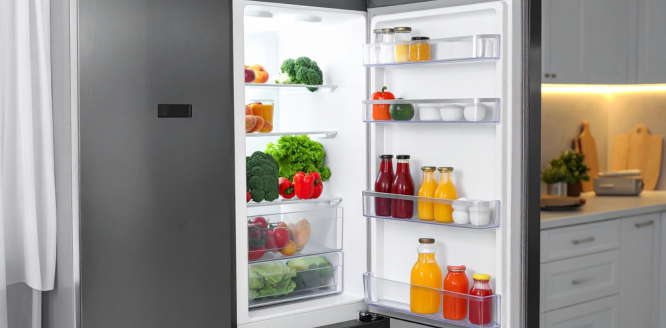
– Check power to the refrigerator by looking at the interior light. If the light is off, check your power source.
– Both freezer and refrigerator controls need to be set to the middle or 0 for the freezer and 37 for the refrigerator.
– Do NOT overfill the freezer or fresh food compartments because it will slow down the airflow, which reduces cooling. Also, overfilling may prevent the doors from closing properly, allowing heat and humidity to enter.
– Your refrigerator is designed to work indoors and is most efficient when it is not exposed to extreme temperatures, both too high or too low.
– The refrigerator should sit on a level floor to ensure proper door closing.
– If you unplug the unit for any reason, wait a minimum of 10 minutes before plugging it back in.
– We recommend cleaning your condenser coils every six to twelve months to increase the efficiency and life of your refrigerator. You can purchase an inexpensive coil brush (TJ103) by calling 877-338-4794.
Dishwasher
DISHWASHER TIPS:
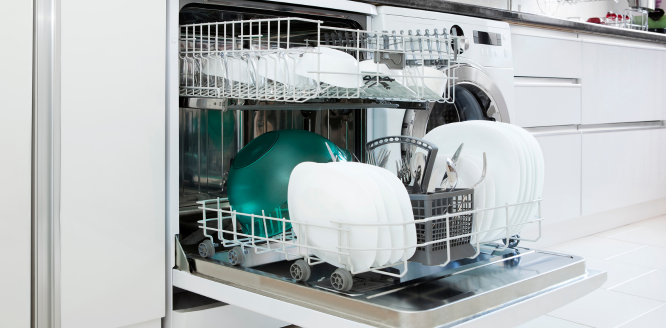
– Check for power. If you cannot hear noise or see any lights, reset the breaker or the GFCI outlet in the kitchen and make sure the door is closing properly.
– Rotate the wash-arms; they should be unobstructed and turn freely.
– Run the garbage disposal to clear the drain and run the hot water in the sink to increase water temperature, before turning on the dishwasher.
– Never fill the soap cup all the way with detergent; half-way is enough.
– Make sure your dishwasher detergent is not old or expired and that you are using high quality soap. For best results you can order quality soap directly from our website. CLICK HERE to order soap.
– Remember to fill your Jet Dry cup as well (when empty) to improve dish drying.
– If you have an exposed heating element, plastic containers and dishes should be loaded on the top rack only, to avoid overheating the plastic.
– If the dishwasher has filters, you do not need to rinse your dishes, but you do need to clean out the filter every 5-10 loads. See manual for more instructions.
– When dishwasher cycle is complete, it is better to unload the lower rack first.
– 1-3 times a year, run a vinegar cleaning process to avoid any mineral build-up:
– Take 1 gallon of white vinegar and pour directly onto the floor of your dishwasher, without any dishes or soap, high enough to cover the heating element. (If you see one)
– Let it soak over night. The vinegar needs time to dissolve all the deposits.
– The next day, run the dishwasher empty for a short cycle to clean it before your next load.
Oven & Cooktop
OVEN & COOKTOP TIPS:
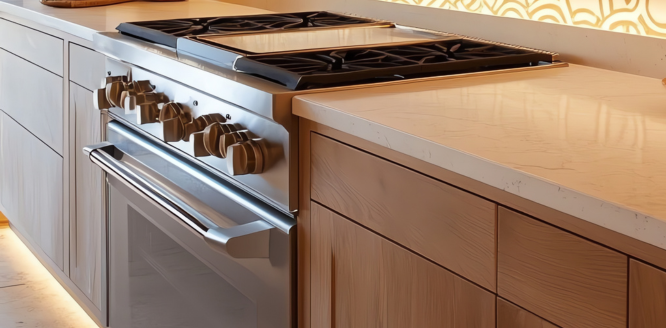
– If you have a self-cleaning oven, do not use oven spray cleaner because it will damage the porcelain interior of the oven and cause it to rust.
– Self-clean does not need to be done more than once or twice a year, unless you cook more often than the average cook.
– Self-cleaning can put more stress on the oven, so it is best not to do a self-clean right before a big event that involves more cooking than usual. Try to do the self-clean a few weeks prior to heavy cooking or, even better, after the event.
– Do not line the bottom of the oven or the racks with foil. Doing so interferes with proper heat distribution and food will not bake evenly.
– Avoid spilling grease and liquids on top or inside of the oven. If you have a cooktop, avoid spraying cleaner or any liquids around the controls. The moisture can seep underneath and cause damage.
– If your knobs and controls are at the back of the range, turn on your vent fan to keep the controls from overheating when the rear burners are on, when you are baking or broiling, or when doing a self-cleaning.
– For better baking of any dough, set the temperature 100 degrees higher than the recipe call for. When that temperature is reached, put the food in and lower the temperature to what it should be. This prevents the oven from quickly overheating the dough by keeping the heating system off in the first 10 minutes.
– If your want to replace your knobs or other parts, please call 877-338-4794 and have model number available.
Washer
WASHING MACHINE TIPS:

– To prevent flooding, we recommend using stainless steel or PVC fill hoses instead of rubber hoses.
– Make sure the washer is balanced and sitting on a solid floor. Front loading washers are heavy and tend to go off-balance if not on a concrete floor.
– Start by putting the detergent in first, clothes in next, making sure to evenly distribute their weight, and only then start the washer.
– Avoid overloading or underloading the washer. Remember to match the size of your laundry load with the proper water level height to ensure proper cleaning and water conservation. Overloading will damage your washer. Underloading your washer may cause the laundry to “float” in the tub and to go off balance. Be sure the water level covers all laundry and lets the clothing move freely.
– We recommend using only premium HE powdered detergent on all washers. For best results, CLICK HERE for the brand we recommend.
– Avoid stacking the dryer on top of the washer for easier servicing of both appliances, which will save time and money.
– To prevent mold and bad odors inside a front load washer, leave the washer door open after the cycle. Every 3-6 months, pour 2 gallons of white vinegar into empty tub, let it sit overnight, and then run the rinse cycle. This keeps the system clean. For a moldy or dirty gasket on a front load washer, use a mold and mildew cleaner made for the shower and tub. Or we can replace it for you.
– If the washer provides a choice, it is best to agitate the clothes on low speed and to use a faster spin. Lowering the agitation speed keeps the clothing from getting “beat-up” and the faster spin gets more water out of the clothes for a shorter drying cycle without damaging clothes.
– Unless the label specifies, wash in warm water and rinse in cold. Always follow the manufacturer’s cleaning label for best results.
– Check the pockets of clothing while sorting. Remove all items such as coins and hard, sharp objects to prevent any damage. Also, put small items (socks, lingerie, baby clothing, etc.) in laundry bags to keep the washer from “eating” them or getting into the pump.
– Avoid fabric softener and bleach. Fabric cleaning boosters and all fabric bleach is fine. For best results, CLICK HERE for the brand we recommend.
– Big items such as comforters, blankets, sleeping bags, and rugs should be washed in large commercial washers. Do not wash any rubber backed rugs in your home washer. Read all labels and follow the instructions before washing any unusual items.
Dryer
DRYER TIPS:
Disconnect the vent from behind the dryer. Clean the filter. Set on automatic cycle, low heat and run for a full cycle with clothes. If the problem disappears you have a vent problem, call a vent cleaning company. If the problem persists, call us to set up service for your dryer.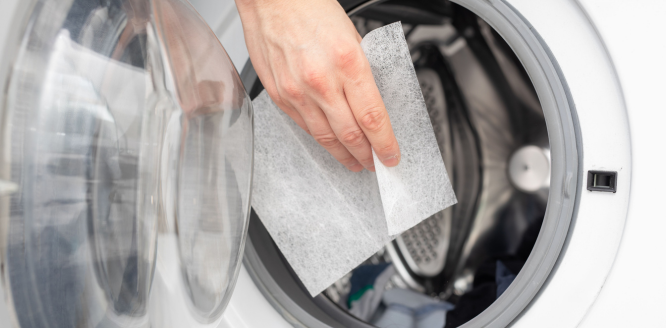
– Do not overload the dryer.
– Clean the filter before every load, and mid-load for heavy lint items like towels and sheets.
– Choose automatic cycle, not timed cycle, and set to the lowest temperature possible.
– Do NOT use dryer sheets because it will affect your filter and moisture sensor, and reduces air flow, slowing down the drying process.
– Avoid stacking the dryer on top of the washer for easier servicing of both appliances, which will save time and money.
– Make sure the dryer is not too close to the wall to prevent kinking the vent hose.
– Clean or replace the vent as needed for proper airflow. Do not use vinyl for the vent. We can recommend a vent cleaning company if needed.
Garbage Disposal
GARBAGE DISPOSAL TIPS:
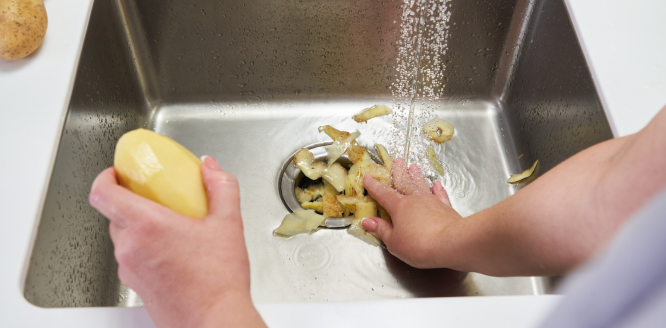
– Turn on the water BEFORE running the disposal.
– You can only process food in your disposal; avoid putting anything that you believe is too hard to chew up in your mouth.
– If you hear a loud or unusual noise, TURN OFF unit immediately. Carefully look into disposal and remove any non-food items (utensils, packaging, etc.)
– To Clean your unit, simply add ice cubes to the water and then run the garbage disposal. Do this every few weeks or monthly. Avoid all other methods.
– If the unit is not running, try to unjam it by using the tool provided with the disposal (Allen Wrench).
– If you do not have this tool, they are available at any hardware store
– AFTER you have unjammed the unit, you must reset the overload button, by pressing the little red square button located under the unit & run it with cold water.
– Check your warranty before calling anyone for service. Warranty information is usually printed on the label on the garage disposal. Some warranties are up to 7 years.
Ice Machine
ICE MACHINE TIPS:

– Keep controls at the normal setting, following manufacturer’s recommended temperatures. Ice machines do not perform properly on low or high settings.
– Every 6 months, clean the condenser coils at the bottom of the unit.
– Remove lower panel to access coils.
– Use your vacuum to remove any dust and lint build-up.
– Read and follow cleaning instructions in your owner’s manual.






